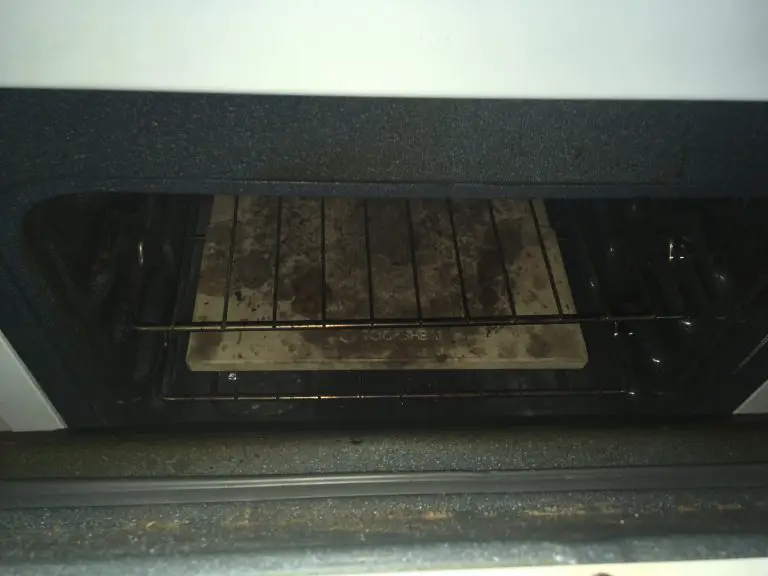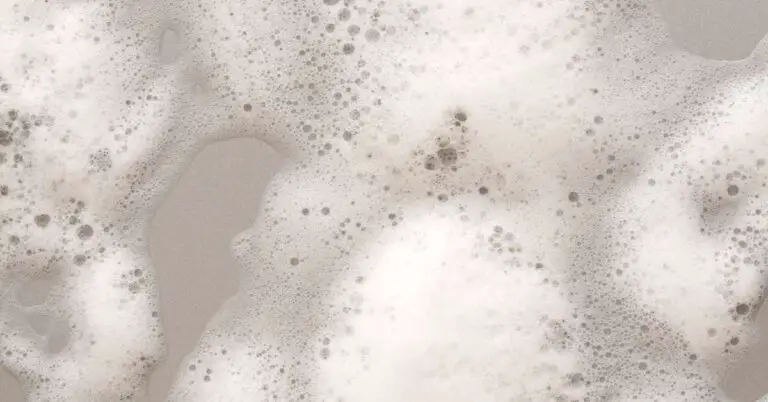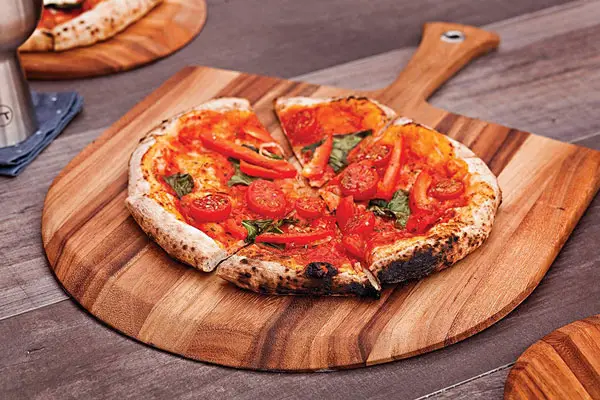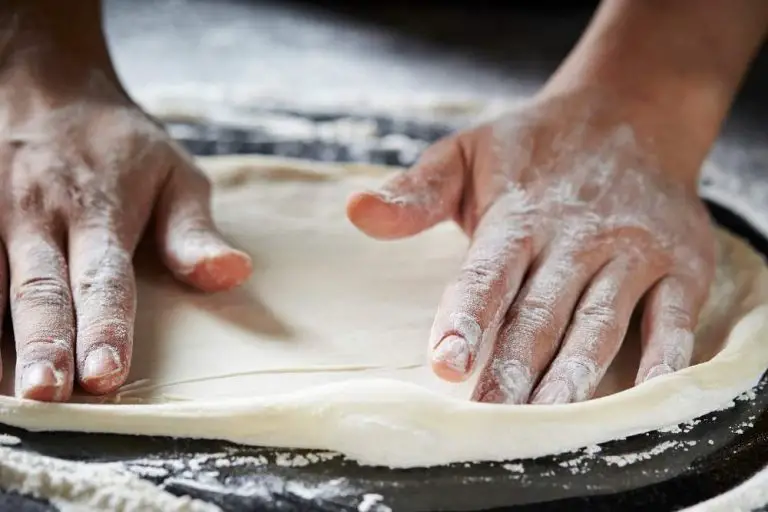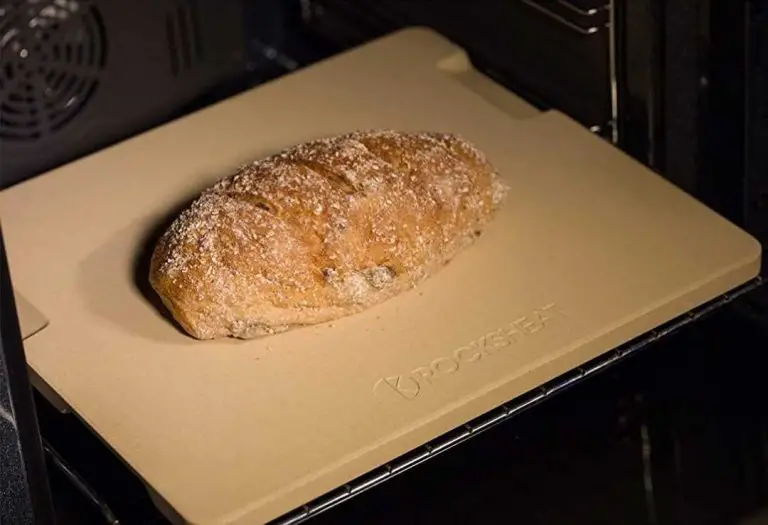Should You Oil A Pizza Stone? No – Here’s Why
Pizza stones serve a very simple purpose but for some reason can be confusing when you’ve never used one before. Take the issue of oiling a stone before using it, for example. Is it a good idea?
No! You should never oil or pre-season a pizza stone. Pizza stones are porous and absorb moisture as well as bake the crust. Oiling a pizza stone will block these pores and can make the stone more likely to crack in the future.
If you’re curious why this is–read on. Let’s first answer why you should never put oil on a pizza stone then explore how a pizza stone works. Finally, I’ll give you some tips for using your pizza stone for the first time and cleaning it up afterwards.
Why You Should Never Oil A Your Pizza Stone
Oiling or pre-seasoning pizza stones is something that people talk about online but unfortunately it’s based on bad information.
I think the confusion comes, at least partially, from the fact that you are supposed to pre-season and oil cast iron products before use. Cast iron is used for many of the same reasons that pizza stones are – they both absorb and retain heat well – so I can understand confusion. The same goes for pizza steels – since they’re made from metal, they need a good layer of slickness for optimal results.
But pizza stones work in a completely different way and adding a layer of oil to them can reduce their functionality. When the tiny holes the cover the pizza stone get clogged with oil and grease, they can no longer absorb moisture. This reduces the pizza stone’s ability to bake your dough into a delicious pizza crust.
A greasy or oily pizza stone can become a hazard as well. Any oil that gets trapped inside the pizza stone is likely to smoke up the next time you go to use it. These oils and fats can also expand when heated up and cause the stone to crack prematurely.
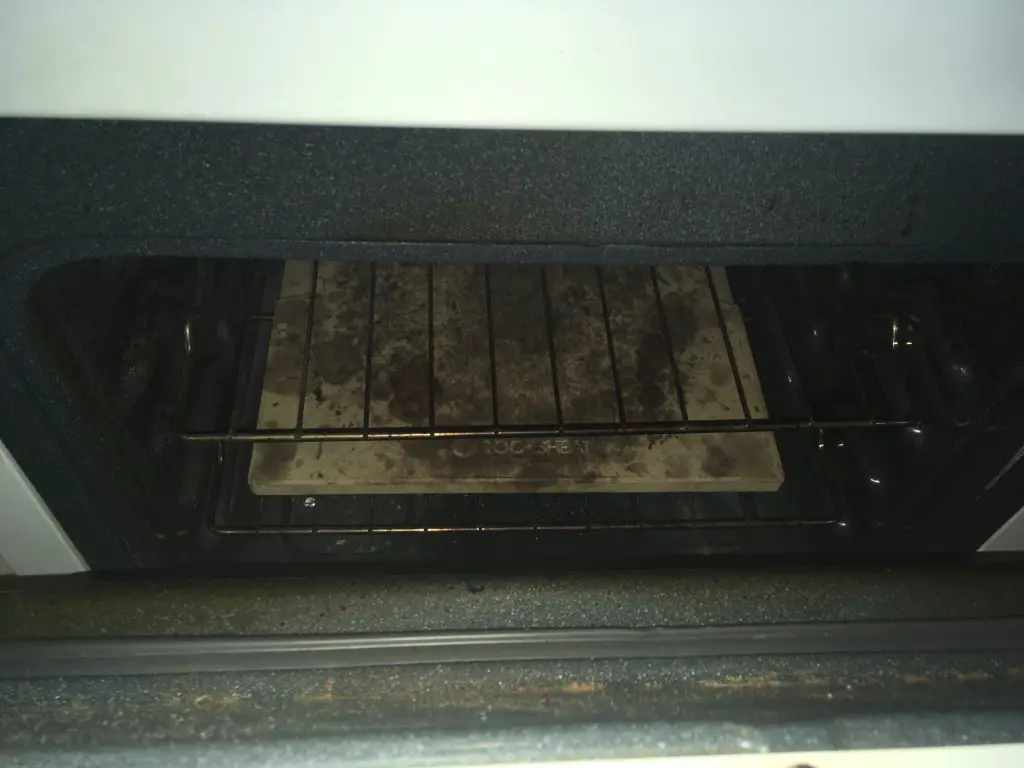
How Does A Pizza Stone Work?
Pizza stones work by doing two things. First, the stone gets super hot so that it can bake the pizza and form a nice browned crust. Second, the stone absorbs moisture from the dough to help it bake better.
The key to why a pizza stone works so well is the material its made from – ceramic. Ceramic is a porous material that actually absorbs the outside moisture of the pizza dough to help create a crisp crust.
This ability to absorb moisture is one of the advantages of a pizza stone over a pizza steel, which has a flat metal surface. While the pizza steel might heat up faster in the oven, it won’t absorb any moisture from the pizza dough like a stone can.
I prefer using a pizza stone over steel, when possible, for this reason.
How To Use A Pizza Stone For The First Time
This is another topic that I think gets misrepresented online. Some people think you need to not only oil but scrub or wash a pizza stone before using it. This is just wrong.
Using a pizza stone for the first is simple and only requires a couple of simple steps:
- When you first take it out of the box do a quick visual inspection to make sure it isn’t cracked.
- Then take a dry cloth and brush away any of the packaging that might have stuck to the stone while it was in the box.
- Bake the pizza stone at a medium heat for several hours to cook away any manufacturing byproducts (optional).
Step 3 is really just if you want to take things one step further. You can pre-bake your stone at a medium temperature for a few hours to bake away any residue that might be left behind from the manufacturing process. But personally I think this last step is unnecessary as most pizza stones I’ve worked with have come fairly clean directly from the factory.
Also, don’t dust the stone with flour or cornmeal before using it. Flour and cornmeal can be useful to prevent sticking, but it should be used on the dough and pizza peel. If you apply things like this directly to the stone it can cause smoking and set off fire alarms.
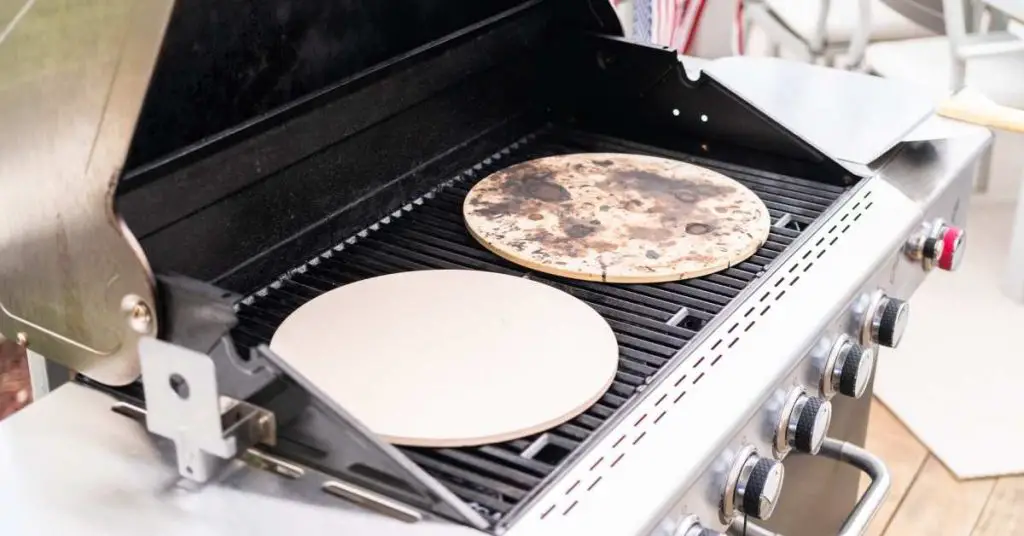
How To Clean A Pizza Stone
Cleaning a pizza stone is fairly easy as long as you haven’t let too much oil build up on the stone as you’ve been using it. To do so, follow these steps:
- Let the pizza stone cool completely before attempting to clean it.
- Using a metal spatula, scrape away any bits of dough or toppings that might have stuck to it. These pieces of debris should scrape off easily once they’ve dried up in the oven.
- Using a slightly damp (but not dripping) cloth, brush away any flour or dust from the stone.
- Let the stone dry completely at room temperature before using it.
Just be careful on the last step because you don’t want to get the stone too wet. The ceramic material of a pizza stone is designed to absorb moisture but only in very small amounts that evaporate away quickly under the extreme heat.
This means if you get too much water on it while cleaning it, you run the risk of the stone cracking the next time you heat it up. This happens because the moisture expands and turns into steam and if there’s enough of it the pressure will break the stone apart. But don’t worry – this is only a risk if you don’t let the stone dry completely before using it again.
Final Thoughts
Taking care of your pizza stone is essential if you want it to last more than a few years. The best way to take care of it is preventing, as much as possible, oils and fats from spilling onto the stone.
But with this in mind, it’s important to remember that it’s impossible to keep a pizza stone completely clean. During the course of normal usage, it’s almost guaranteed that you will spill some oils and fats, including cheese and sauce, onto the stone.
This is OK as long as the spillage is minimal and accidental, but it’s a reminder of why we don’t need to season the stone in the first place. After a few years of use, you’re going to have a thin buildup of grease on the surface of the stone anyways. At this point you might even want to think about buying a new stone to get the best pizza crust results.


